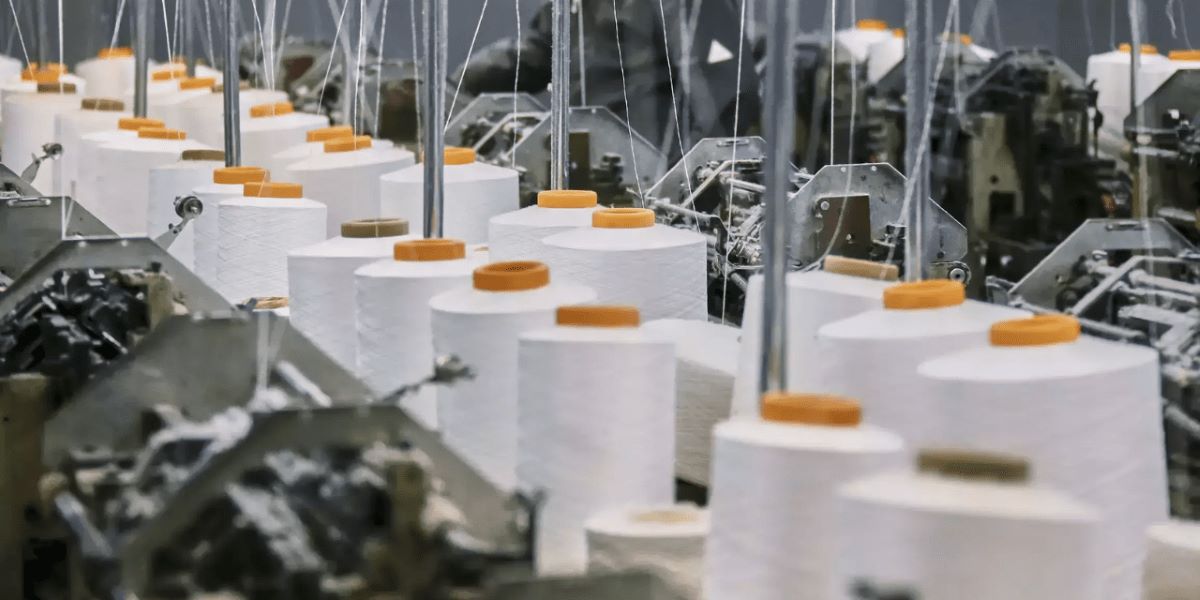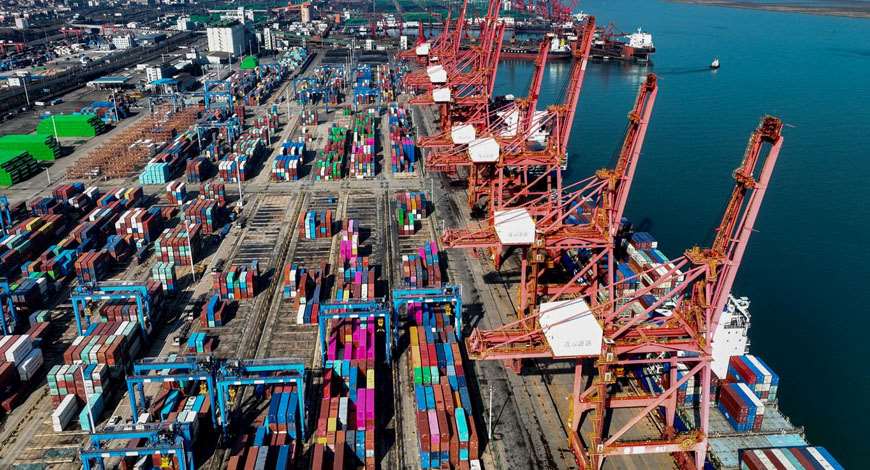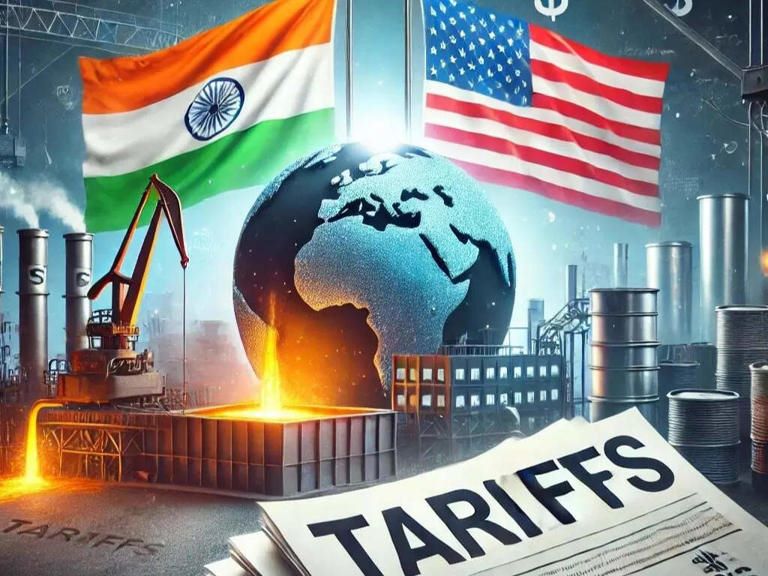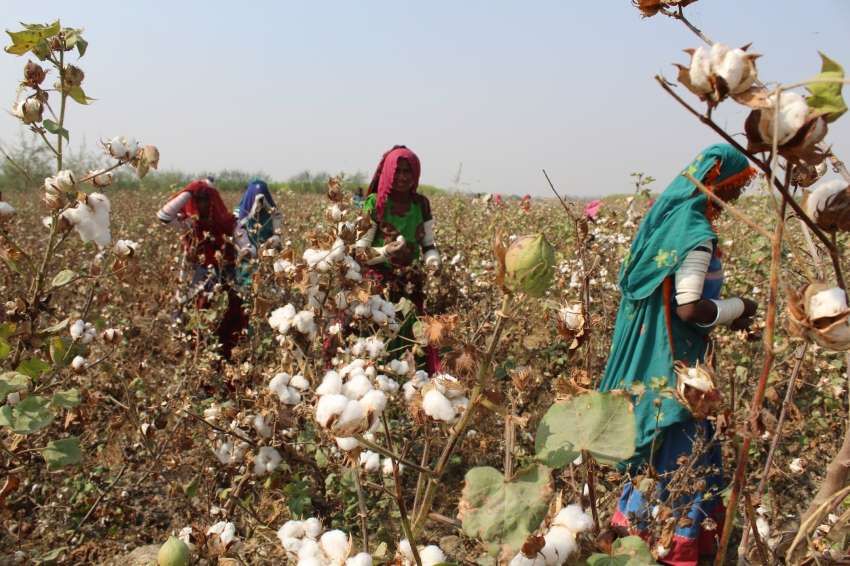FW

The integration of cutting-edge materials like graphane into conventional fibers is transforming India’s textile industry. The focus is on increasing the use of viscose, a widely used semi-synthetic fiber, to create high-performance textiles with global appeal. This initiative, exemplified by the groundbreaking collaboration between Birla Cellulose and Bhilwara Group Companies, positions India as a key player in the growing market for advanced textile materials.
Global advancements
The global graphene market from which graphane is derived is witnessing substantial growth. Several reports outline the growth in this market. For example, as per Grand View Research, the global graphene market was valued at $195.7 million in 2023 and projected to grow at a CAGR of 35.1 per cent from 2024 to 2030. According to Fortune Business Insights the global graphene market size was valued at $432.7 million in 2023 and is projected to grow from $570.3 million in 2024 to $5,193.2 million by 2032, at a CAGR of 31.8 per cent during the forecast period. What’s pushing this growth is the growing demand from the electronics, automotive, and aerospace industries. The Asia Pacific region is a dominant player in the graphene market, due to its robust manufacturing sectors and increasing investments in technology.
Global trade in graphene-related materials is increasing, with countries like China and the US as major exporters. The import of graphene-based products is also rising, as countries seek to integrate these materials into their manufacturing processes.
The viscose connection
The evolution of graphane fibers is closely intertwined with the existing viscose industry. Viscose, a semi-synthetic fiber, has long been a staple in textiles. Researchers are exploring ways to integrate graphane into viscose production to enhance its properties. Internationally, many initiatives are gaining traction.
European Research initiatives: Several European research consortia are focusing on integrating graphene into textile fibers for applications in smart textiles and wearable sensors. These projects often involve collaborations between universities, research institutions, and textile manufacturers, aiming to develop functional textiles with enhanced conductivity and durability.
South Korean advancements: South Korean companies are actively researching and developing graphene-enhanced fibers for applications in high-performance sportswear and industrial textiles. These efforts are driven by the country's strong focus on advanced materials and textile innovation.
US development: Companies within the US are exploring Graphene enhanced fibers for military applications, and for the development of advanced body armor.
India scenario
The agreement between Aditya Birla Group's Birla Cellulose, Grasim Industries, and Bhilwara Group Companies marks a an important moment in India's textile evolution. This collaboration aims to manufacture viscose fibers reinforced with graphene, leveraging the material's exceptional strength, durability, and thermal properties. TACC Ltd will supply graphene derivatives, while RSWM Ltd will utilize the improved viscose fibers to produce advanced textiles. This initiative underscores India's commitment to innovation and its drive to elevate the quality and functionality of its textile products. The sheer scale of Grasim Industries with a consolidated net revenue of Rs 1.3 lakh crore in the 2024 fiscal year, illustrates the potential impact of this collaboration.
Despite the immense potential, the widespread adoption of graphane-enhanced textiles faces numerous issues, including high production costs, scalability issues, and the need for standardization. However, ongoing R&D efforts, coupled with strategic collaborations like the one in India, are paving the way for a promising future. The Indian textile industry, with its vast resources and entrepreneurial spirit, is poised to capitalize on these advancements and establish itself as a global leader in the production of innovative, high-performance textiles.

While the Western world grapples with overflowing closets and the growing discourse on sustainable fashion, a quiet change is unfolding in the global textile landscape. A recent report, ‘Global Fiber Consumption: Where the Next Decade’s Growth Will Come From’, unveils a startling prediction: the future of fiber consumption lies not in the saturated markets of North America and Europe, but in the developing economies of Asia and Africa.
Textile Exchange's 2024 Materials Market Report pegged global fiber production at 124 million tons, translating to 15.5kg per person. However, this figure is expected to grow to 160 million tons by 2030, raising a critical question: Who is driving this exponential growth?
"The traditional view of focusing on production facilities doesn't capture the true essence of demand," explains a lead analyst involved in the report. "We need to look at end consumption – the individual consumer – to grasp the long-term dynamics."
A new lens on global fiber demand
To unravel this complex web, researchers developed a ‘practitioner’s model’ a nuanced approach that transcends mere production figures. They crafted a Fiber Consumption Index (FCI), incorporating factors such as GDP per capita, urbanization rates, Human Development Index (HDI), and Heating Degree Days (HDD). "We normalized the data, setting North America as the benchmark with an FCI of 0.93," the analyst explains. "This allowed us to map per capita consumption across 19 distinct geographic regions."
Table 1: Regional per capita fiber consumption (2024)
|
Region |
FCI |
Per capita consumption (kg) |
|
North America |
0.93 |
35 |
|
East Asia |
0.92 |
34.6 |
|
West Europe |
0.81 |
30.4 |
|
North Europe |
0.79 |
29.6 |
|
Southeast Asia |
0.65 |
24.4 |
|
South America |
0.61 |
22.9 |
|
Central Asia |
0.55 |
20.6 |
|
Middle East |
0.52 |
19.5 |
|
Southern Africa |
0.45 |
16.9 |
|
East Europe |
0.43 |
16.1 |
|
Central America |
0.4 |
15 |
|
West Africa |
0.38 |
14.3 |
|
South Asia |
0.35 |
13.1 |
|
Northern Africa |
0.33 |
12.4 |
|
Pacific Islands |
0.3 |
11.3 |
|
Central Africa |
0.28 |
10.5 |
|
South Europe |
0.25 |
9.4 |
|
East Africa |
0.19 |
7.1 |
The Asian juggernaut, driving today's consumption
The data reveals that East Asia, with its vast population and growing middle class, is the current behemoth, accounting for 27 per cent (34.5 million tons) of global fiber consumption. In contrast, North America, despite its high per capita consumption, represents only 10 per cent (13.2 million tons).
Table 2: Regional total fiber consumption (2024)
|
Region |
Total consumption (mn tons) |
Percentage of global consumption |
|
East Asia |
34.5 |
27.4 |
|
North America |
13.2 |
10.5 |
|
Southeast Asia |
15.1 |
12 |
|
South Asia |
17 |
13.5 |
|
West Europe |
9.1 |
7.2 |
|
North Europe |
4.1 |
3.3 |
|
Other Regions |
32.9 |
26.1 |
|
Global Total |
126 |
100 |
However, the future narrative is even more compelling. By 2035, the report projects a dramatic shift, with Asia and Africa leading the charge. Using GDP growth projections and a ‘saturation factor’ to account for varying consumption patterns, the model predicts a surge in fiber demand from these regions. In fact, India, with its rapidly increasing middle class and growing e-commerce sector, exemplifies this trend. As experts say, Indian textile market is seeing unprecedented growth and consumers are increasingly demanding affordable, fashionable clothing, pushing up domestic production and imports.
Table: 3 Regional incremental fiber consumption growth (2024-2035)
|
Region |
Incremental consumption (mn tons) |
Percentage of total growth |
|
South Asia |
23 |
42.6 |
|
Southeast Asia |
14 |
25.9 |
|
East Africa |
3.9 |
7.2 |
|
West Africa |
3.1 |
5.7 |
|
Other Regions |
10 |
18.5 |
|
Global Total |
54 |
100 |
Implications and future directions
The findings carry profound implications for industry stakeholders, investors, and policymakers. Fiber producers need to strategically position themselves in emerging markets focusing solely on saturated markets will lead to stagnation, point out experts. Moreover, the environmental implications are significant. As consumption rises in Asia and Africa, sustainable practices to mitigate the industry's footprint need to increase.
However, the report acknowledges its limitations, including assumptions about the FCI, production equalling consumption, and GDP projections. Future research will focus on refining the model, incorporating behavioral trends, and exploring sustainability scenarios.
Thus the global textile landscape is passing through a change, with Asia and Africa ready to reshape fiber consumption in the coming decade. As the world's wardrobe expands, the industry must adapt to this new reality, embracing both economic opportunity and environmental responsibility.
The fashion industry is known to generate 11.3 million tons of textile waste annually, with 2,150 clothing pieces discarded per second. This crisis is largely fueled by fast fashion, leading to almost 71 per cent of the respondents to Kearney’s 2024 Circular Fashion Index saying, they were willingly to pay a premium for more sustainable options. However, only 25 of the total surveyed 235 brands actively embrace circularity, adds the Index.
Once competitors, Smartwool and icebreaker now unite under VF Corporation to challenge fashion’s wasteful model. Smartwool’s Second Cut™ Project collected 1 million+ old socks for recycling, while icebreaker strives for a 100 per cent plastic-free supply chain. Their initiatives offer resale, take-back programs, and ZQRX-certified regenerative wool, ensuring full traceability from farm to fashion.
Made from repurposed yarn, Smartwool’s Second Cut™ Hike Sock bagged the ISPO Award 2023 for its groundbreaking sustainability efforts. Meanwhile, icebreaker reached 96.14 per cent plastic-free by 2024 and transparently reports its progress - aligning with 73 per cent of consumers who demand brand accountability.
Better Cotton has renewed its standard recognition agreement with the Brazilian Cotton Growers’ Association, ABRAPA.
Effective retroactively from October 2024 - October 2025, this agreement will automatically renew for another three years if all requirements are met.
Since 2014, ABRAPA’s Responsible Brazilian Cotton (ABR) Program has been recognized as equivalent to the Better Cotton Standards System (BCSS). This allows Brazilian farmers to sell their cotton as ‘Better Cotton’ in both national and international markets.
During the 2023/24 cotton season, the 440 Brazilian farms with ABR certification produced over 3 million metric tons of Better Cotton. This represents more than 83 per cent of Brazil's total cotton production.
Better Cotton requires its Strategic Partners to regularly reassess and, if necessary, update their standards to match the BCSS. This ensures that both standards evolve to support cotton farmers in meeting the market's demand for more sustainable cotton.
The new agreement confirms the ongoing alignment between the Better Cotton Standards System and the ABR Program.

The global garment export industry faces a paradox. While long-term projections indicate an overall decline, a group of top eight exporters reveal significant potential for growth. However, this potential is increasingly threatened by a critical vulnerability: a heavy over-reliance on the US market. Data compiled by David Birnbaum, a strategic planner in the garment export sector, casts a spotlight on this worrying trend.
US market volatility and influence
Birnbaum's analysis reveals several leading garment-exporting nations, despite their strengths, are dangerously dependent on the US market for their export revenues. This concentration of trade creates a precarious situation, exposing these economies to significant risks from fluctuations in the US economy, shifts in US trade policy, or changes in consumer preferences.
Over-dependence on the US market is a major concern for several key reasons.
US import fluctuations: US garment import trends are volatile. As Birnbaum's data shows, US imports peaked in 2019, dropped sharply in 2020, and experienced a collapse in 2023. This erratic pattern creates instability forexporting nations heavily reliant on the US.
Economic vulnerability: Dependence on a single market, especially one as large as the US, exposes exporting countries to its economic cycles. A US recession or slowdown can drastically reduce demand for garments, negatively impactingexporting economies.
Policy risks: Changes in US trade policies, tariffs, or import regulations can have immediate and severe consequences for countries that primarily export to the US. This geopolitical risk adds another layer of instability.
Shifting consumer preferences: Rapid changes in US consumer tastes and fashion trends can leave exporters scrambling to adjust. If a country's production is geared heavily toward specific US demands, a shift in those demands can lead to unsold inventory and economic losses.
Table: US garment imports over the years
|
Year |
US garment imports ($ mn) |
|
2015 |
89,089 |
|
2016 |
83,969 |
|
2017 |
83,550 |
|
2018 |
86,697 |
|
2019 |
87,384 |
|
2020 |
71,166 |
|
2021 |
87,287 |
|
2022 |
105,353 |
|
2023 |
81,591 |
|
2024 |
83,710 |
India: Untapped potential, undue risk
India, identified by Birnbaum as a nation with substantial potential to excel as a fashion garment exporter, exemplifies this concern. While India possesses the capacity to expand its global reach, its strong ties to the US market pose a considerable threat to its long-term stability in the garment export sector.
Table: India's garment exports ($ mn)
|
Year |
US |
EU |
|
2015 |
3869 |
5410 |
|
2016 |
3822 |
5630 |
|
2017 |
3875 |
5819 |
|
2018 |
4024 |
6177 |
|
2019 |
4255 |
5862 |
|
2020 |
3202 |
4880 |
|
2021 |
4491 |
5693 |
|
2022 |
6005 |
6670 |
|
2023 |
4679 |
6081 |
|
2024 |
4933 |
5728 |
This table, derived from Birnbaum's data, clearly illustrates India's export values to the US and the EU over the past decade. The figures highlight the significance of both markets, but the potential danger lies in an overemphasis on the US.
Indonesia, a successful exporter, a looming shadow
Indonesia, with its well-established and successful garment export industry, faces a similar challenge. Birnbaum's research indicates that Indonesia's reliance on the US market, while contributing to its current success, represents a potential vulnerability that needs to be addressed proactively
Table: Indonesia’s garment exports ($ mn)
|
Year |
US |
EU |
|
2015 |
5154 |
1640 |
|
2016 |
4902 |
1715 |
|
2017 |
4745 |
1798 |
|
2018 |
4677 |
1846 |
|
2019 |
4565 |
1697 |
|
2020 |
3668 |
1701 |
|
2021 |
4385 |
1907 |
|
2022 |
5921 |
2227 |
|
2023 |
4344 |
1712 |
|
2024 |
4433 |
1461 |
This table, drawn from Birnbaum's data, underlines Indonesia's export activity. The data signals a need for strategic diversification to mitigate risks associated with US market fluctuations.
Thus Birnbaum's analysis emphasizes that while the top garment exporters possess significant strengths, the concentration of trade with the US poses a substantial threat. To secure long-term stability and growth, these nations must actively pursue diversification strategies, exploring new markets and reducing their vulnerability to the fluctuations and uncertainties of the US market.
Once a global powerhouse in cotton production, India now faces a stark reversal of fortunes. From being the world's leading cotton producer and exporter, the nation has shifted gears to becoming a net importer of this vital fiber. What led to this dramatic turnaround?
The rise and fall
India's cotton production touched unprecedented heights in the early 2000s, with the adoption of genetically modified Bt cotton. This revolutionary technology, introduced in 2002-03, promised protection against the voracious American bollworm pest. The impact was immediate and transformative: production nearly tripled within a decade, from 13.6 million bales to a peak of 39.8 million bales in 2013-14. India swiftly ascended to the pinnacle of global cotton production, illustrating the potential of scientific innovation in agriculture.
Table 1: India's cotton production and yield (selected years)
|
Year |
Production (mn bales) |
Yield (kg/hectare) |
|
1970-71 |
5.65 |
127 |
|
2002-03 |
13.6 |
302 |
|
2013-14 |
39.8 |
566 |
|
2018-19 |
26 |
449 |
|
2021-22 |
24.3 |
428 |
|
2023-24 |
25.4 |
436 |
|
2024-25 |
25 |
461 |
Source: USDA Foreign Agricultural Service (Note: Figures may vary slightly across different sources)
Technological plateau
However, this success story has since plateaued, with production projected to plummet to 25.0 million bales by 2024-25, the lowest in over a decade. The decline is multifaceted, but important factor lies in India's hesitance to embrace further technological advancements in cotton cultivation and processing. The regulatory scenario surrounding genetically modified crops has become increasingly stringent, stifling innovation and field trials of promising new technologies.
Regulatory challenges and public perception
India's regulatory framework, often influenced by public consultations dominated by environmental activists, has contributed to what critics call a "regulatory deadlock." The approval process for new GM technologies, essential for combating evolving pest threats like the pink bollworm, has become bogged down in bureaucratic hurdles. This reluctance extends beyond genetic modification to encompass modern farming practices such as drip irrigation, which remain underutilized compared to global counterparts like the US and Brazil.
Economic and social impact
The repercussions are profound. Farmers, once buoyed by the promise of increased yields and reduced pest damage, now face stagnant productivity and increased vulnerability to pests and diseases. The economic impact is stark: lower yields diminish farm incomes, while increased dependence on imports strains India's trade balance. India's cotton imports was $184.64 million in January 2025, compared to just $19.62 million in January 2024. The CAI projects imports in 2024-25 may double compared to the previous year, reaching an estimated 3.00 million bales, while exports are projected to be 1.70 million bales. In 2024-25 alone, imports are projected to double compared to the previous year, underscoring the industry's declining competitiveness on the global stage.
Table 2: India's cotton imports and exports (mn bales)
|
Year |
Imports |
Exports |
|
2011-12 |
7.5 |
129.59 |
|
2013-14 |
11.51 |
116.96 |
|
2018-19 |
35.37 |
43.55 |
|
2020-21 |
11.03 |
77.59 |
|
2022-23 |
10 |
35 |
|
2024-25 |
3 |
1.7 |
Source: Cotton Advisory Board & Cotton Association of India
Path forward
The path forward demands a renewed commitment to scientific research and a streamlined, science-based regulatory framework for agricultural biotechnology. Embracing modern farming techniques and investing in research and development for climate-resilient and pest-resistant seed varieties are critical steps to revitalizing India's cotton sector. The challenge is clear: without a technological resurgence, India risks relinquishing its storied legacy as a global leader in cotton production.
As policymakers and stakeholders convene to chart the future course of India's cotton industry, the imperative is to learn from past successes and failures alike. The tale of Indian cotton, once marked by innovation and resilience, must not become a cautionary tale of missed opportunities. The time is ripe for bold, decisive action to reclaim India's position as a beacon of agricultural innovation on the global stage.

As expected, President Donald Trump announced the imposition of sweeping reciprocal tariffs on April 2. The aim is to address perceived trade imbalances by imposing a baseline 10 per cent tariff on all imports, with significantly higher rates for specific countries. This policy has sent shockwaves through the global textile and apparel (T&A) sector, an industry deeply intertwined with international supply chains.
Tariff breakdown and immediate implications
The new tariffs vary from country to country, reflecting the administration's strategy to match foreign tariffs and counter non-monetary trade barriers. Notably, China faces over 50 per cent tariff; the EU is subjected to 20 per cent; and 26 per cent tariffs are for Japan, South Korea and India. As The Guardian writes, these measures are intended to correct what the US administration describes as decades of unfair trade practices.
Impact on the textile and apparel sector
The fashion industry, heavily reliant on imports from Asia, is particularly vulnerable. Countries like China, Vietnam, and Bangladesh, which are major suppliers of textiles and apparel to the US, are directly affected. Vogue Business says the high tariffs are expected to raise production costs, leading to higher prices for consumers and potential shifts in sourcing strategies.
India's response
India, facing a 26 per cent tariff, is proactively seeking to mitigate the impact by pursuing a bilateral trade agreement with the US. The Apparel Export Promotion Council (AEPC) highlights that 28 per cent of India's textile and apparel exports are destined for the US, with tariff variations ranging from lower duties on cotton fabrics to as high as 33 per cent on man-made fibers. By negotiating a trade deal, India aims to secure more favorable terms and enhance its competitiveness in the US market.
Impact on the US domestic market
The introduction of reciprocal tariffs is expected to have mixed effects on the US domestic market. While the policy aims to protect domestic manufacturers, it will also lead to higher prices for raw materials and finished goods, affecting consumers and businesses alike.
- Higher consumer prices: Due to increased tariffs on imported textiles and apparel, retail prices for clothing and footwear are expected to rise by 15-25 per cent.
- Increased production costs: US-based manufacturers relying on imported fabrics and machinery will see operational costs rise, potentially leading to job losses.
- Shift in sourcing strategies: Brands and retailers may shift to domestic suppliers or explore alternative sourcing from countries in Latin America.
- Retail market struggles: Mid-tier and budget retailers, such as Walmart and Target, which rely on low-cost imports, are expected to face significant challenges.
Market, global reactions and economic forecasts
The announcement has led to immediate market volatility. As per Investopedia, major US stock indices saw significant declines in after-hours trading on April 2, 2025. The SPDR S&P 500 ETF fell by over 2 per cent, the Dow Jones ETF decreased by 1 per cent, and the Nasdaq-tracking Invesco QQQ Trust dropped up to 3 per cent. Companies with extensive global supply chains, such as Apple and Tesla, saw their shares fall approximately 6 per cent and 4 per cent, respectively. Apparel giants like Nike and Lululemon also saw a drop of 7 per cent and over 11 per cent, respectively.
International reactions have been swift and varied. China has condemned the tariffs and is considering countermeasures. As The Guardian reports the EU and Japan too criticized the move and are particularly concerned about the impact on their automotive industries. South Korea is seeking diplomatic resolutions, while India is exploring tariff reductions to ease tensions. Canada and Mexico, though exempt from the latest tariffs due to existing agreements, remain vigilant.
Table: Tariff impact by country and industry
|
Country |
T&A tariff (%) |
Affected sectors |
Expected price increase (%) |
|
China |
50%+ |
Apparel, Footwear |
20-30% |
|
India |
26% |
Cotton, Fabrics |
10-15% |
|
EU |
20% |
Luxury Apparel |
12-18% |
|
Japan |
26% |
Technical Textiles |
10-15% |
|
South Korea |
26% |
Synthetic Fibers |
8-12% |
Therefore, the latest tariffs imposition marks a significant shift in global trade dynamics, with profound implications for the textile and apparel industry. As nations navigate these changes, the sector faces a period of uncertainty, necessitating adjustments and diplomatic engagements to mitigate adverse effects and capitalize on emerging opportunities.
Driven by a consistent demand, the global woven cotton fabric market is poised for continued growth. However, the pace of this expansion is expected to remain moderate over the next decade.
As per a report by Indexbox, the value of global woven cotton fabric market will grow at +1.2 per cent from 2024 to 2035, reaching $122.1 billion by 2035 while the market will grow at a +0.2 per cent CAGR in volume to reach 15 billion sq m by 2035.
In 2024, total global consumption of cotton fabric increased by 1.8 per cent to 15 billion sq m. This consumption was led by at 4.3 billion sq m, followed by the United States at 1.8 billion sq m and India at 894 million sq m. China also dominates in value, with $24.1 billion, while the US market is valued at $11.3 billion. Notably, India's consumption saw the fastest growth among major consumers.
The global production of cotton fabrics increased to 20 billion sq m in 2024, with China accounting for 58 per cent of the total. The US and Pakistan are also significant producers. The production value totaled $136.5 billion.
Worldwide imports of cotton fabrics totaled 4.5 billion sq m in 2024, with Bangladesh, the US, and Italy being the largest importers. Imports mainly consisted of cotton fabrics containing 85 per cent or more cotton, weighing less than 200 g/sq m. Nigeria saw the fastest growth in import volume and value.
Global cotton fabric exports reached 9.5 billion sq m in 2024, with China accounting for approximately 80 per cent of all exports. The value of these exports totaled $19.6 billion. The primary exported product was cotton fabric containing 85 per cent or more cotton, weighing less than 200 g/sq m.
Average import and export prices for cotton fabric have generally declined since 2014. Import prices averaged $3.9 per sq m in 2024, while export prices averaged $2.1 per sq m. Price variations exist across different fabric types and countries. Vietnam has the highest import prices, while Thailand has the lowest. India has the highest export prices, while China has the lowest.
Monforts will present its latest energy-efficient innovations at IGATEX Pakistan 2025, taking place in Karachi from April 24-26. The company will highlight the Universal Energy Tower, a stand-alone air/air heat exchanger that recovers heat from the exhaust air of thermal systems like stenters and Thermex dyeing ranges, delivering up to 25 per cent energy savings. Equipped with an integrated fresh air fan, real-time temperature visualization, and easy-access cleaning features, this modular upgrade enhances efficiency while reducing operational costs.
“Our machines are built for durability, but retrofitting with advanced control and drive technology can significantly improve performance,” says Monforts Area Sales Manager Manfred Havenith. “Compared to new machines, these upgrades are a cost-effective investment with clear benefits.”
Monforts will also showcase the Matex Eco Applicator, an alternative to conventional padding that minimizes drying energy consumption. By precisely applying finishing chemicals and reducing residual moisture to just 35 per cent, the system optimizes stenter efficiency. This makes it ideal for specialty fabrics like hydrophobic/hydrophilic professional wear and over-dyed denim.
Other modular upgrades include a clip opener for Montex stenters, reducing wear and noise, and a 19-inch OS Windows PC interface for modernized machine control. Frequency sonverters are also available to enhance machine efficiency and minimize downtime.
With a strong presence in Pakistan’s textile sector, Monforts continues to secure repeat orders from major manufacturers in Karachi, Lahore, and Faisalabad, assisting them in developing advanced fabrics for global markets. Visitors can meet Monforts specialists at the stand of its partner, Al-Ameen, in Hall 5, A13-A30, at IGATEX 2025.
The Lenzing Group, a leading provider of regenerated cellulose fibers, has announced changes to its Managing Board. Chief Transformation Officer Walter Bickel will step down from operational activities at the end of March 2025, following a mutual agreement with the company’s Supervisory Board.
Bickel, who joined the Managing Board on April 15, 2024, played a key role in advancing Lenzing’s performance program, exceeding planned targets. His leadership helped establish a foundation for long-term efficiency, ensuring the program’s seamless continuation.
“Walter Bickel and his team have made a significant contribution to improving Lenzing’s results. We thank him for his dedication and wish him success in the future,” said Cord Prinzhorn, Chairman of the Supervisory Board. CEO Rohit Aggarwal reaffirmed the company’s commitment to continuing the program with the same rigor.
Lenzing’s performance program focuses on strengthening resilience, agility, and financial stability. It aims to enhance EBITDA and free cash flow through improved profitability and cost efficiency. Efforts to expand into new markets and acquire customers have already boosted sales. Cost-saving measures resulted in over €130 million in savings in 2024, with targeted annualized savings exceeding 180 million from 2025 onward.
Financially, Lenzing achieved a 5.7 per cent revenue increase and a 30.4 per cent EBITDA rise in 2024 compared to 2023. Free cash flow also improved to €167 million, reversing a negative €122.8 million in 2023. The company remains focused on sustaining this momentum to reinforce its position as an industry leader.













